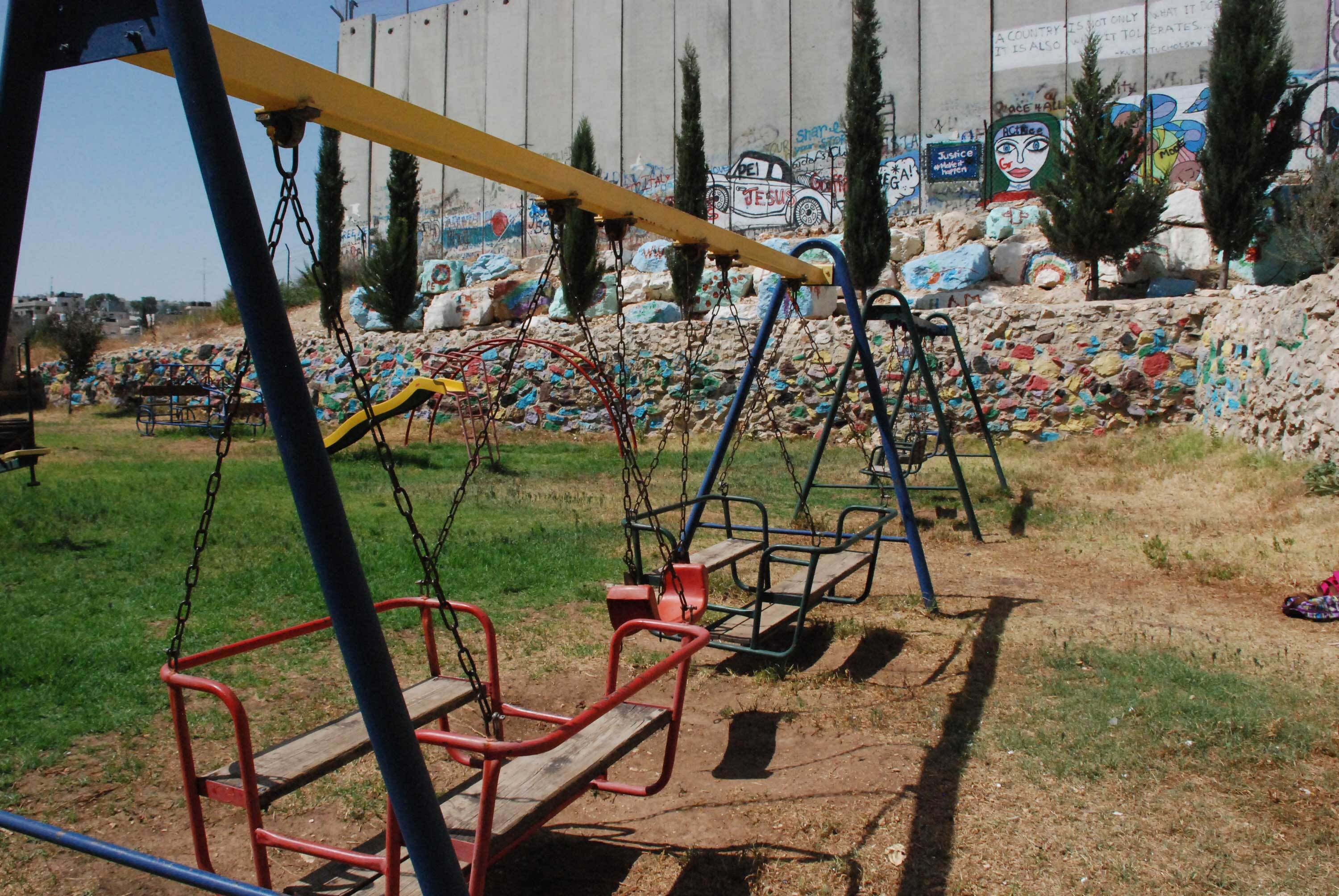The Diocese of Rochester Poverty and Hope Appeal is our annual fundraising opportunity to express our Christian belief in justice for the poor.
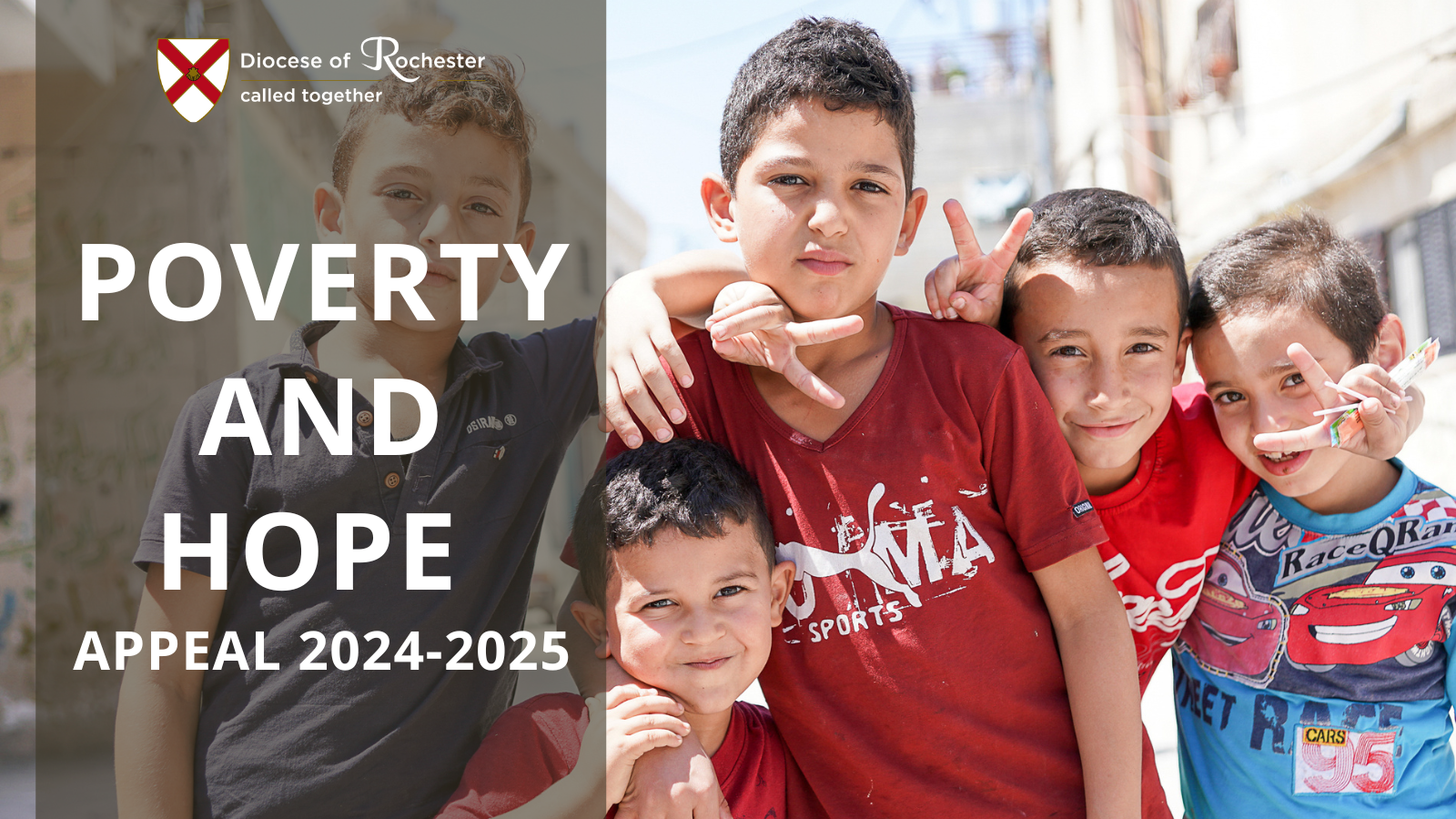
Since 1977 Rochester Diocese has, through this annual appeal, helped meet the most basic needs that all of God’s children deserve: a safe place to live; food to eat; and a way to something better.
We can only make a small contribution in response to a huge worldwide challenge, but we do what we can, working through long-term trusted partners.
Watch this short presentation about the work of Poverty and Hope and how you can get involved.
Nearly £20,000 was raised in the 2023 Appeal and we are most grateful to every church and individual who contributed. Every penny of this is going to our seven beneficiaries: four international Christian Charities and three Companion Dioceses in Tanzania and Zimbabwe.
Over the last five decades, Poverty and Hope has focused on five core themes: Agriculture, Education, Healthcare, Women’s Empowerment and Community Advocacy.
This year we are adding another one: Peace. War and violence has devastated millions of lives in recent years and we can’t just watch helplessly.
We are God’s hands and feet (and money) on earth, so please donate generously!
DONATE ONLINE NOW
The two leading projects over the next twelve months are:
- The continuing efforts through Amos Trust to work for peace and reconciliation in Israel and Palestine, highlighted by the Wi’am Conflict Resolution Centre, working in the shadow of the separation wall in Bethlehem.
- A big new initiative involving Christian Aid, the EU and US Aid, to help people turn away from violence towards peace in Latin America and the Caribbean. The immediate focus is on the 'Communities Living Peacefully' project working at the northern border of Haiti and Dominican Republic.
Amos Trust in Bethlehem
Wi’am Conflict Resolution Centre is one of Amos Trust’s oldest partners in Palestine. Based in Bethlehem it is situated next to one of Israel’s main military checkpoints and is dominated by the Separation Wall and a military watchtower.
Wi'am works with the local community to address the impact of the ongoing occupation and of the multiple restrictions placed on Palestinian lives. Holding mediation sessions for families in dispute, running children’s summer camps, carrying out trauma’ coping’ work with children, parents and teachers and running women’s empowerment sessions. Wi’am recognizes the urgent need to engage women in community issues and empower their leadership roles at both the domestic and societal levels. Activities take place both at Wi’am’s Centre and out in the communities surrounding Bethlehem where Wi’am works ,including Ramallah and Hebron.
In recent year’s Wi’am has created a peace garden and children’s playground in the shadow of the wall. And now, despite the current lockdown and difficulties, Wi’am has just completed the building of a new hall which has created lots of employment at a time when jobs are scarce, offering a space for more community activities and training.
Meanwhile, Amos partners Al Rowwad and Holy Land Trust (who we also supported last year) are, alongside their usual work, currently busy providing food parcels and support to the many families struggling to survive during the current lockdown due to the ongoing war, which has resulted in high unemployment levels and a need for financial support amongst many families in the Bethlehem area. It has been great to see the three organisations working together at this difficult time.
More information on Amos Trust and its work is available through its website www.amostrust.org
Peace Building and Conflict Prevention Initiative 2022-2025
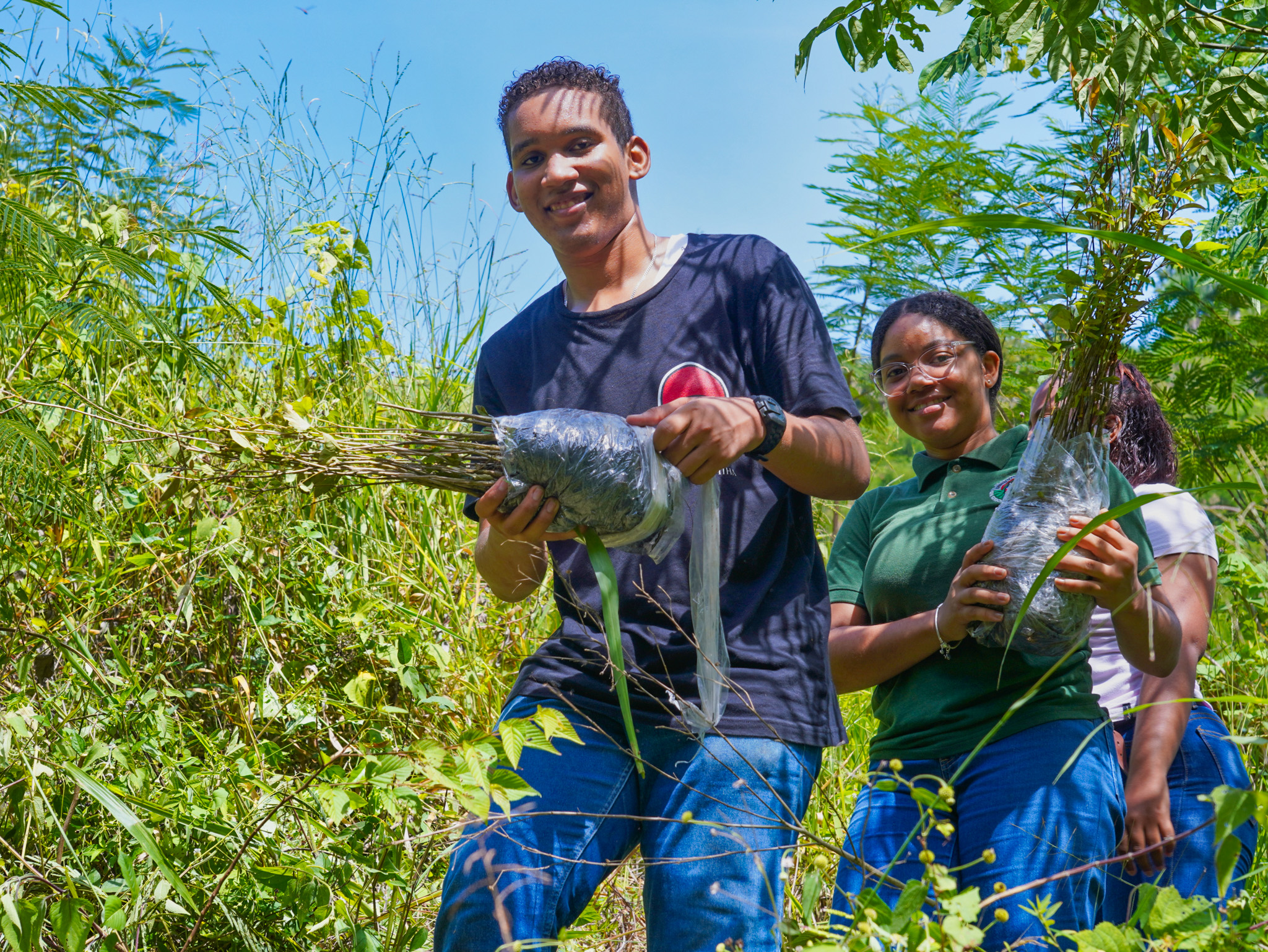
The ’From Violence to Peace Project’, a Christian Aid peacebuilding initiative, operates across Latin America and the Caribbean (LAC), spanning the Dominican Republic, Haiti, El Salvador, Honduras, and Guatemala.
The LAC region faces severe conflict stemming from political, economic, cultural, and environmental tensions, resulting in human rights violations, environmental degradation, displacement, and economic downturns. Moreover, natural disasters and climate change exacerbate these challenges, with droughts and hurricanes affecting 24 million people with the poorest communities are the most exposed to these climate risks.
The initiative aims to reduce conflict by equipping leaders and community members with risk awareness and conflict sensitivity tools to help communities navigate difficult and repressive environments from governments. This will ensure sustainability beyond the project.
As part of this initiative, the 'Communities Living Peacefully' project works at the northern border of Haiti and the Dominican Republic. With a focus on reforestation and community engagement, it is not just about planting trees; it is about planting seeds of trust and peace. From restoring ecosystems to fostering dialogue and cooperation, this initiative is transforming lives and reshaping futures.
Together, Haitians and Dominicans are proving that despite borders, they share a common humanity and a common goal for a better tomorrow. From young to old, a change of narrative is taking place.
Mr. Jose a leader of one of the communities' groups shares with us, ’Personally, I feel more empowered to get involved in new environmental projects in the area, such as one that I am designing to sensitize the youth population about environmental protection.’
It is encouraging to see small seeds of change and we look forward to seeing them grow.
CMS Florianapolis
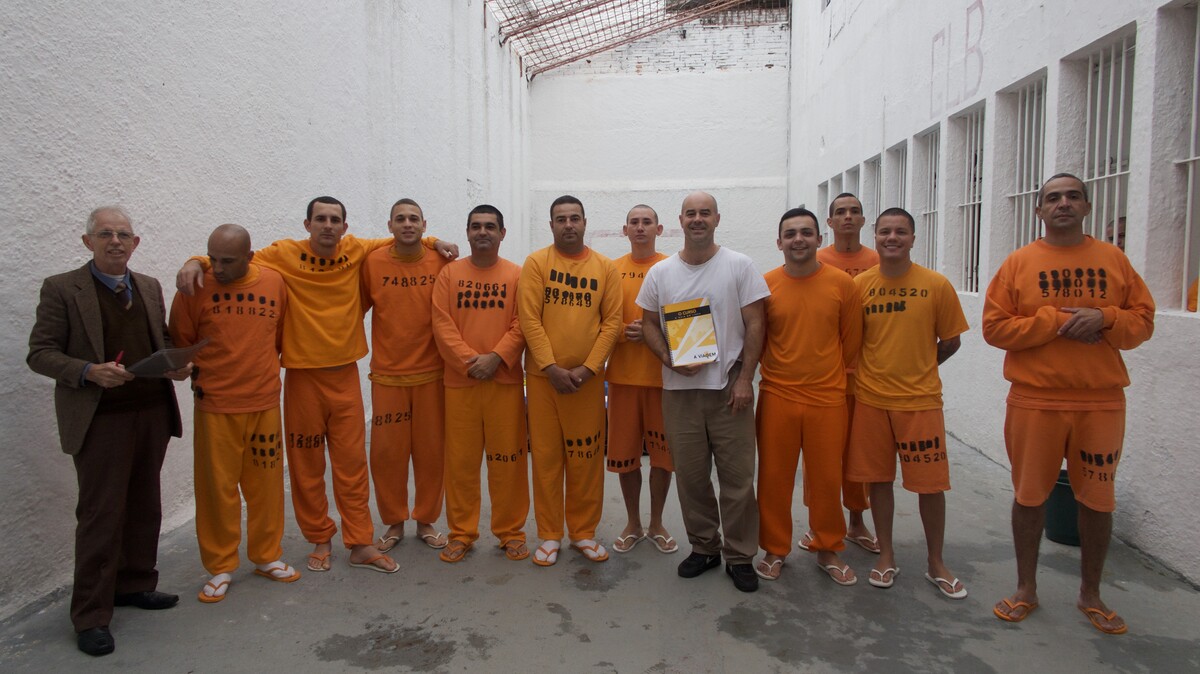
Andi and Kati Walsh are CMS mission partners actively engaged in outreach and evangelism through drug rehab centres and prisons in Florianopolis, Brazil. Andi and Kati partner with local pastors to lead church services in these challenging areas, witnessing powerful responses and transformations during ministry times. In the prisons, Andi and Kati work with a local church leader- Pastor Antonio; conducting sessions through prison doors or in courtyards, where they preach, pray, and offer baptisms to inmates.
Recognising the need for follow-up for baptised inmates, Andy has initiated the delivery of a course inside the prison, tackling fundamental questions of faith over eight-weeks. The success of this initiative has been remarkable, with full attendance and engagement from participants.
Meanwhile, Kati focuses on women's prison ministry. Despite facing tight restrictions in the prison, she is witnessing positive responses, with four women recently accepting Jesus and being baptised. Kati is exploring ways to provide basic necessities such as toiletries and clothes to inmates.
Looking ahead, Andy and Kati aim to continue and expand their efforts, particularly as Pastor Antonio prepares for retirement. They are seeking to register their church for continued prison visits, apply for remission of sentencing, and initiate discipleship courses in the women's prison. Please pray that they would gain favour with prison authorities and for wisdom as they look for ways to provide long-term support of former inmates.
CMS Myanmar Education Programme
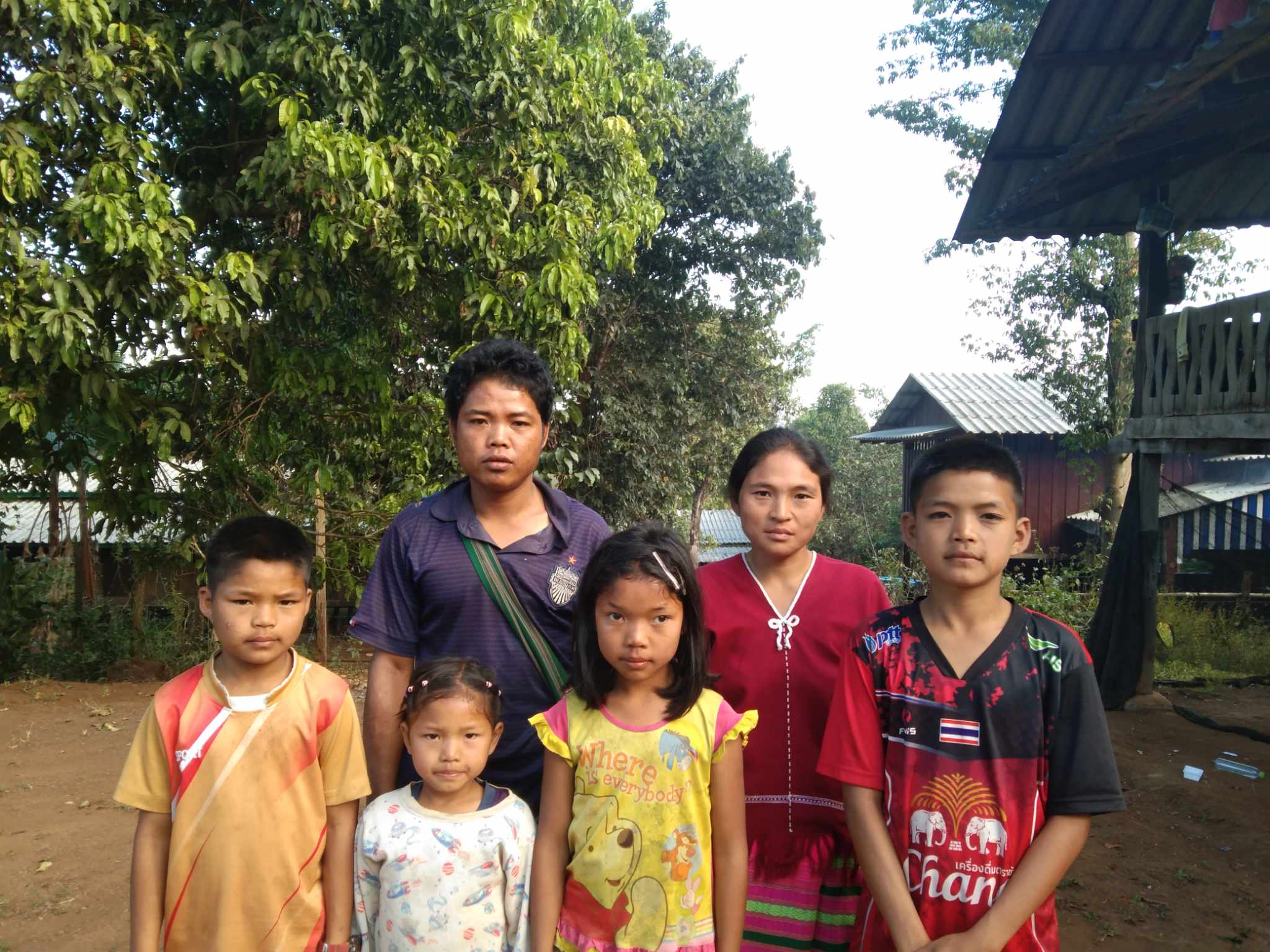
In the remote mountain village of Ta Kreh Kee in Myanmar, 38-year-old Naw Mu Kyar lives with her husband, their three sons and two daughters. The villagers work in agriculture, mainly growing rice, but here is little work for young people in the village and many travel across the border to Thailand to find work. The mountain terrain is hazardous and in the rainy season, people are only able to travel on foot. This makes it very difficult for teachers to travel to the region and it is hard for them to stay, as food is often scarce in the village.
There was no school in the village when Naw Mu Kyar and her husband were growing up. They cannot read or write and they don’t want their children to face the same difficulties that they have experienced. When the Church of the Province of Myanmar (CPM) opened the primary school in the village, Naw Mu Kyar sent her five children to learn to read. Once her eldest boys completed their primary education, the family didn’t have enough money to send them away to secondary school, so her eldest son now works with his father in the fields.
To support students with their education, the CPM funds tuition fees, dormitory costs and provides books, uniforms and stationery. This funding has enabled Naw Mu Kyar’s second son to study at secondary school and given her younger children the materials they need to continue attending the village school. Naw Mu Kyar is incredibly grateful for the donations, such as those from the Diocese of Rochester, that have funded the education programme in her village.
Farming God’s Way in Kondoa Diocese
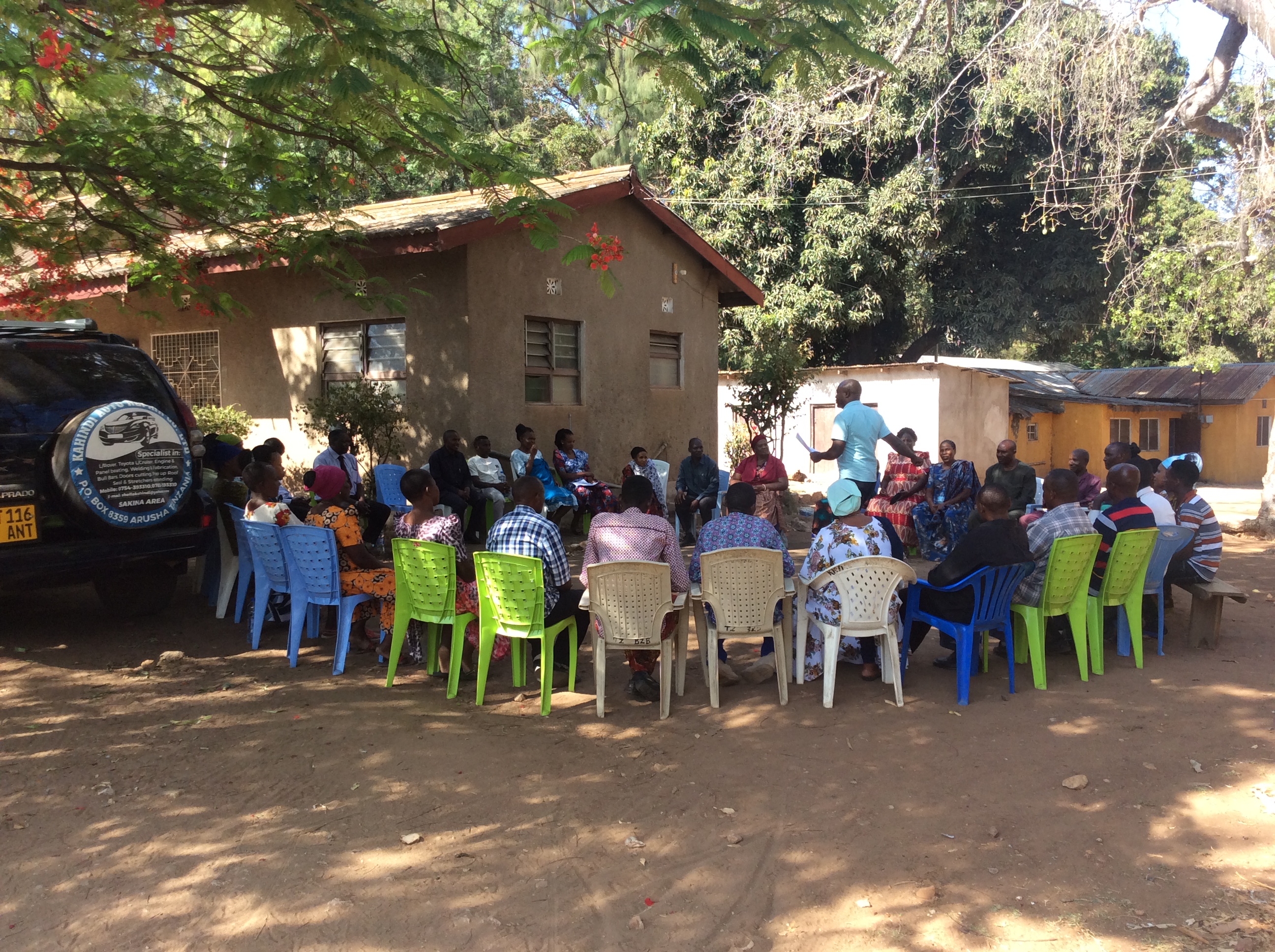
This project is now in its third year, with the support of Poverty and Hope. Kondoa is one of the poorest areas of Tanzania and, over recent years, climate change has had a noticeable and detrimental impact. The rains either do not come or, when they come, they are too heavy and destroy crops.
Families have no other source of income or food when the harvest fails, and so hunger, sickness and malnutrition are inevitable.
Other consequences include increased food prices, decreased value of livestock, reduced school attendance and divided families, as older males leave to find an income.
‘Farming God’s Way’, provides resources to the wider body of Christ, to equip the poor and break the yoke of poverty.
Our support funds an annual seminar led by Farming God’s Way specialists from the neighbouring Diocese of Central Tanganyika. Approximately 140 pastors and catechists attend from across the Diocese and are trained and encouraged to use, and promote in their parishes, different farming methods and new crops, as a response to the changes in climate.
Mpwapwa: “Every Water Drop is Precious”
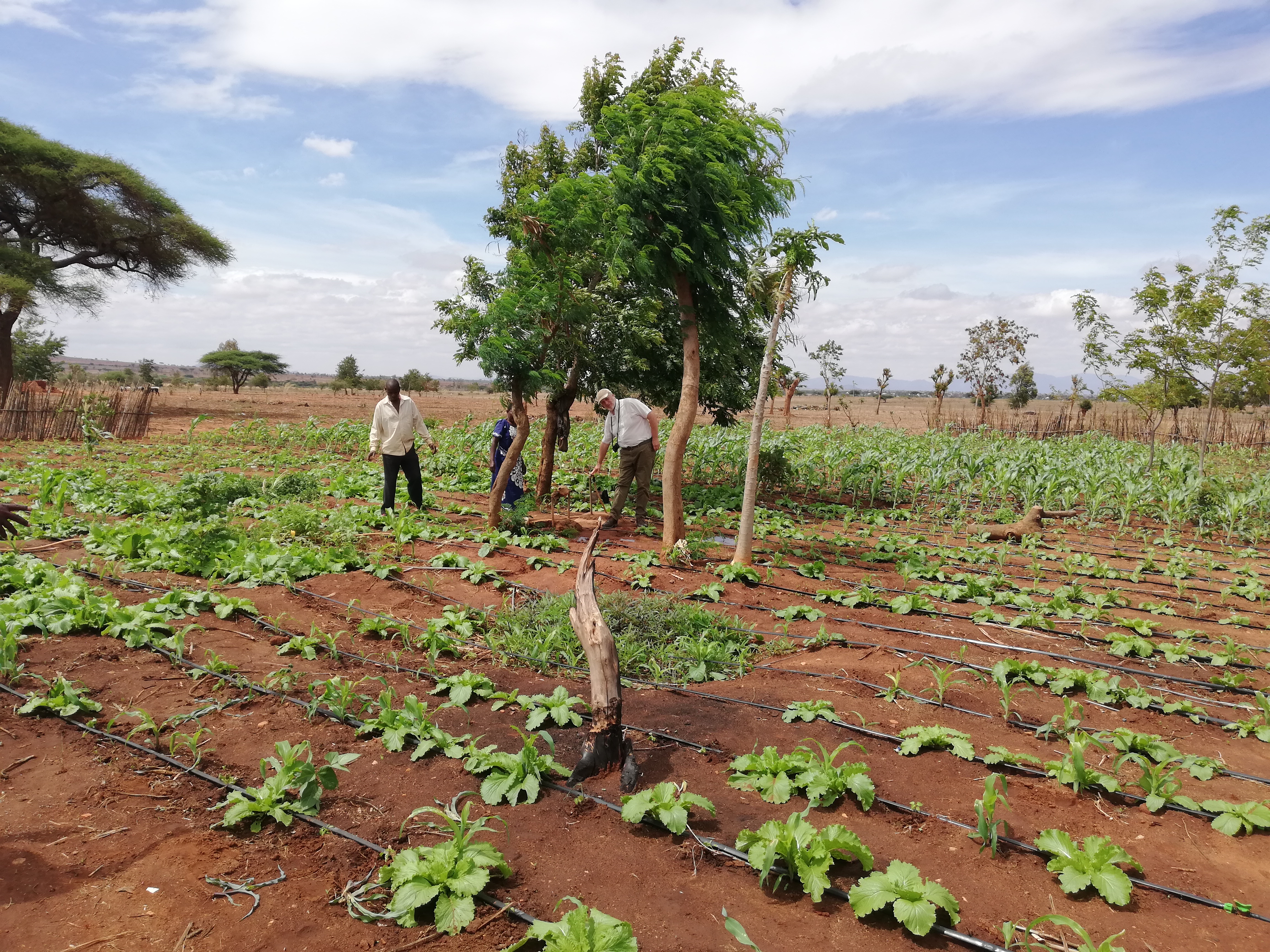
Rochester’s ‘Poverty & Hope’ Appeal is helping to change lives in Mpwapwa and giving hope to so many others.
The initial grant made a year ago was used to install a solar panel array to power a renovated borehole which could provide 24-hour water supply to a local community. This was linked into a drip irrigation system allowing the cultivation of previously barren land.
From the latest grant, loans are given to farmers - in the form of equipment that they keep - to water quarter of an acre of their farm using drip irrigation. It's all set up and monitored by the “Every Water Drop is Precious” team based at St Philip’s College.
Each farmer is confident they will repay the value of the equipment in just one year (one has just repaid their loan in 6 months!). As the loans are repaid, more farmers can benefit and reap great harvests several times a year, despite the impact of climate change and the subsequent erratic rains.
The photograph shows one of the fields which is now serving as a demonstration plot, so those passing-by can see what is possible and training can then be given by the team in a local setting.
Harare Diocese: Responding to drought and economic crisis
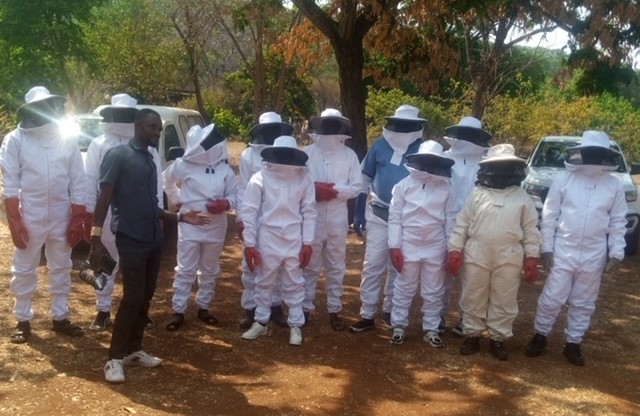
The beekeeping project led by Fr Kingstone Kajakata, (an ex-soldier), launched last year in four parishes around the Diocese of Harare is going well. Beekeepers have had their first harvest of honey, and some honeycomb has been left as feed to boost the colonies’ growth. One positive development for the project is that demand for honey in Zimbabwe is increasing due to high taxes on sugar.
We are also supporting the Harare Diocese’s work in Muzarabani, a poor area in the Zambezi Valley near the border with Mozambique. Churches there are struggling to support their priests, so the Diocese is providing financial support for housing costs, fuel and utility bills.
Because of the El Nino effect, the rainy season has been extremely short, causing a massive drought. To make matters even worse, there has also been a cholera outbreak. Because of the drought and Zimbabwe’s continuing economic crisis, most people have been buying maize, but in the first few months of this year the price has more than doubled. This is a huge increase for people who are already struggling. These factors are seriously affecting life expectancy.
How to make a donation
We know that the pandemic has greatly affected many members of our communities and that you yourself may be struggling. However, if you are able to do so, please support the Poverty and Hope Appeal in whatever way you can.
As well as DONATING ONLINE you can also:
E-banking: You can make a donation by e-banking to the following account: Rochester Diocesan Society and Board of Finance, sort code 20-54-29, account 90760099. In the reference box, please put P&H so we can correctly allocate the money to the Poverty and Hope Appeal, and something to identify your church (or nothing if you wish your donation to be given anonymously).
Send a cheque: please make out to ‘Rochester DBF’ with ‘Poverty and Hope Appeal’ on the back and send them with any completed gift aid envelopes to Finance Team Rochester Diocese, St Nicholas Church, Boley Hill, Rochester ME1 1SL.
Add giftaid: You may increase the value of your giving by gift-aiding your donation. This allows us to reclaim the tax relating to your gift. Please download and fill in this form and return it with your donation to the Rochester Finance Team at: Finance Team Rochester Diocese, St Nicholas Church, Boley Hill, Rochester ME1 1SL.
Spread the word
We would love your help in spreading the word about the Appeal in your communities and to encourage as many donations as possible:
- NEW - Download a recorded presentation - ideal for a Harvest Service or Supper, or any church gathering.
- Posters (A4) Option 1, Option 2, Option 3
- Social media card
- Suggested magazine and newsletter text
Why not invite someone to come and talk about Poverty and Hope in your church. Please email Peter Kettle, Poverty and Hope Coordinator, on: povertyandhope@gmail.com or call 01474 813 632.
Key Contacts
Peter KettlePoverty and Hope Appeal Coordinator |
